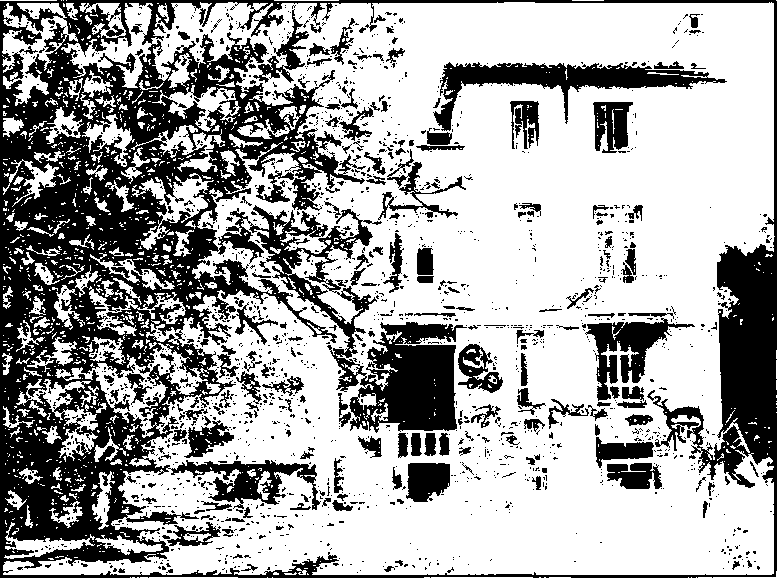102
exchange for the teachers’ freedom: a micro-scale revolt against authority. Such an act
would not have been possible had the students not felt an affinity towards an anti-
establishment ideology, or if students did not feel a sense of unity with peers, both within
their social circles and beyond them, that enabled this kind of broad political solidarity.
The paréa has thus become a site of non-political, civil or proto-civil social potentiality.
Consider another example: adolescents and younger university-age people have taken to
occupying abandoned houses on the weekends where they hold parties, screen movies,
organize environmental action, and, more recently, pursue “DIY”109 living by planting
vegetable gardens, generating their own power, and reusing discarded furniture and
appliances from the neighborhood110 (see figure 4).

Figure 4: An occupied home in Halandri, Athens.
109 This is a popular acronym for “do it yourself’: a trend that has become popular among environmentally
conscious individuals (see for example Purdue et al. 1997) and generally those looking to save money, fight
consumerism, and global corporate influence (see for example Strachan 2007).
‘10 For more on these kinds of urban “squats” see Ruggiero (2001).
More intriguing information
1. Deprivation Analysis in Declining Inner City Residential Areas: A Case Study From Izmir, Turkey.2. The name is absent
3. The name is absent
4. A novel selective 11b-hydroxysteroid dehydrogenase type 1 inhibitor prevents human adipogenesis
5. he Effect of Phosphorylation on the Electron Capture Dissociation of Peptide Ions
6. Menarchial Age of Secondary School Girls in Urban and Rural Areas of Rivers State, Nigeria
7. INSTITUTIONS AND PRICE TRANSMISSION IN THE VIETNAMESE HOG MARKET
8. DURABLE CONSUMPTION AS A STATUS GOOD: A STUDY OF NEOCLASSICAL CASES
9. sycnoιogιcaι spaces
10. Asymmetric transfer of the dynamic motion aftereffect between first- and second-order cues and among different second-order cues